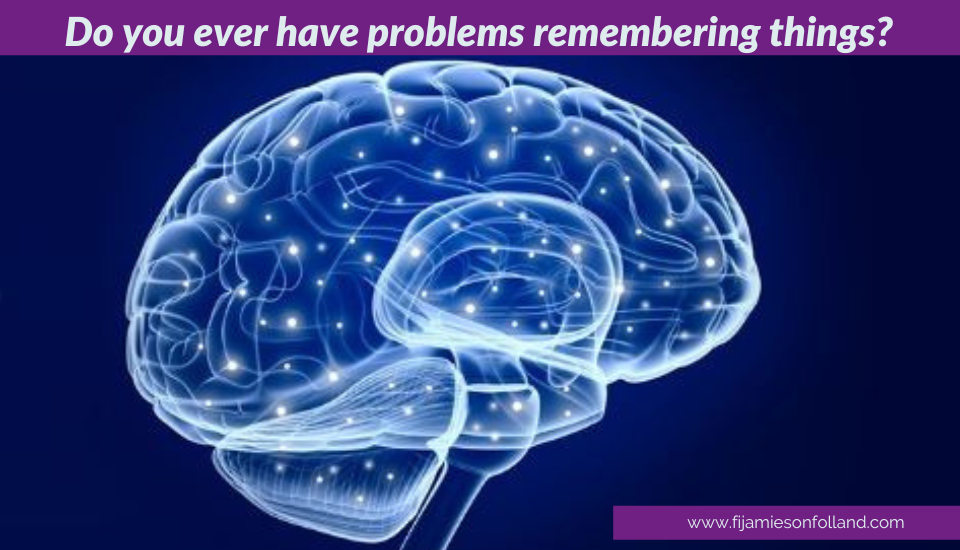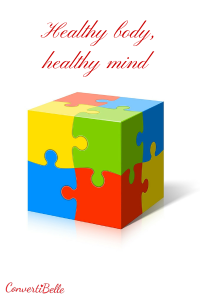Fi Jamieson-Folland covers 3 keys to help enhance your short term memory, boost your brain power, and sharpen your mind.
Does it ever feel like you’re going slightly potty? Forgetting the simplest things, like what you went to the shops to buy, the reason you made a phone call, and even loved-ones’ birthdays? For sure, we all forget the odd thing now and then, although living with, or having treatment for cancer (such as with chemo-, radio- or hormonal therapies), can mean memory loss becomes noticeable. It can even be a side effect of taking common meds such as steroids, anti-depressants, sleeping tablets and pain medications.
I remember noticing a difference in my mum’s mental sharpness during the last year or so of her life – as her undiagnosed cancer was progressing. On reflection, it seemed as though her life was getting ‘smaller’ somehow. I’ve always been interested in how we can boost our capacity both physically and mentally, especially from my studies with physiological and functional anatomy. Amazingly, our brains can change and adapt well, regardless of our age, and this is called ‘neuroplasticity’. So the ‘I’m just getting old’ philosophy may not be the whole story!
Theory is all well and good – although I’m constantly curious about how we can practically help ourselves maximize our memory, especially when we may be affected by disease or medication. So I’m constantly trialing things for myself, and I’m keen to share with you what I’ve personally found helpful.
So Voila! The top 3 keys to help sharpen your short term memory –
- Use it or loose it! – Did you know that our brains are like muscles? So the more we use them, the more they develop so that we can process and remember information faster and easier. When we do things like crosswords, puzzles, card games, listen to educational audios, read personal development, nurture our friendships and our hobbies – then we’re literally building our brain muscles.
Specifically, we build on our hand-eye coordination and reasoning in different areas of our brains, when we do things that involve our hands – like playing a musical instrument, table tennis, doing pottery, drawing, needlework and even having a go at juggling.
So how often is it best to be giving our minds a work-out? Good question – to figure this one out, picture a fit healthy person jogging down the street. How often to you reckon they exercise ~ once in a blue moon? Mmm, more likely a minimum of 5 days a week! The more agile you choose your brain to be, the more often the better. The most important thing, is to focus on the things you like the idea of doing – ideally that are new, challenging and fun! In fact laughter activates many different regions in the brain, plus our learning and creativity increase when we listen to jokes and figure out punch lines. Even the rehearsing and remembering of jokes are perfect work outs for our minds.
So, you can remember this tip, as ‘friends and fun’!
2. Physically speaking – We just talked about the jogging and physical-fitness analogy. In fact, it’s also your way to indirectly stimulate your brain. When we’re keeping physically active, a lot of our movements call for complex coordination patterns by our brains. Plus, the movements increase the blood flow (including vital oxygen and nutrient supply) to and from everywhere in our body, including our brains.
Exercise can protect our brain cells, and increase the effects of our body’s helpful brain chemicals. Plus, by exercising, you’re also reducing your risk for disorders like cardiovascular disease and diabetes that can lead to memory loss. It’s been found that exercise can actually stimulate the growth of cells in an important area of the brain called the hippocampus – which is a key area for making new memories.
And sleep on it! Interestingly, it’s important to rest-up too! Once again, it makes good sense. Have you ever been super busy, or done a big work out, and then carried straight on into the next thing without stopping? And in contrast, have you instead had a wee break, to take stock and let your mind and body recuperate? I’ve SO noticed a difference with when I give myself that mini-break and when I don’t!
You’ll find that you can focus better on solving challenges and being creative after rest. And research shows that vital memory-enhancing activity happens during the deepest part of our sleep cycle. Get this…memories of certain things we do, like practicing the piano, can actually improve whilst we sleep! And when we sleep well, our ability to learn new things can increase by around 40%!
3. Munch for your mind! – Imagine for a minute what happens when you cut open an apple – what happens to the exposed flesh? It goes brown, and this is normal! Believe it or not, this same process goes on the inside and outside of our bodies, for example with our skin – which is when we can see wrinkles and sun spots starting to show. Also in our joints and organs like our liver and our brains. Now, going back to the apple, when we take a fresh piece of sliced lemon and rub it on the surface of the freshly cut apple – what happens? It stops it from going so brown, and the lemon juice is called an antioxidant (or A/O). So, imagine what can happen when we find the right kind of lemon juice for our bodies, inside and out?…including our brains. Fruits and veggies, nuts and legumes (beans) are packed with nature’s own A/O’s.
Food for thought – So keep in mind that powerful A/O’s can help to protect our brain cells from damage, and so reduce brain aging and increase mental alertness and enhance memory.
Specific food ideas – Great options (note the specific nutrient in brackets) include
– cold-pressed olive oil salad dressings, sunflower seeds, spinach & kidney beans (vitamin E),
-soybeans (choline), salmon, sardines & mackerel, and walnuts, flaxseeds, pumpkin seeds (omega-3’s especially DHA), k
-kale, spinach and broccoli (vit E and folate),
-avocado (vits E & C), blueberries, strawberries, and acai berries (vit C and multiple phytochemicals),
-green tea, plus green leafy veggies and also coloured fruits and veggies including bananas, apricots, watermelon, pumpkin, beetroot (polyphenols – powerful A/O’s)
-limit saturated fats like dairy and red meats (these fats can reduce concentration and memory, and increase risk of dementia)
-gingko (nootropic properties – linked with memory enhancement)
Final Top Tips – to get your memory-edge!
- Focus – It takes about eight seconds of intense, un-interupted focus to process a piece of information into your memory.
- Use your senses – Relate info to colors, textures, smells, and tastes. Writing things out, and saying them out loud can help imprint it onto your brain.
- Think laterally – Connect new info to information you already remember, eg an address of someone who lives on a street where you already know someone.
- Basics first –and in relation to what you already know, and it helps to explain the ideas to someone else yourself.
- Revise – Ideally the same day you learn it, and periodically afterwards.
- Notes – keep a notepad handy to jot down ideas.
- Diarise it! – keep track of events and appointments.
- Friend support –it can be helpful to have a friend with you at medical appointments, as to help you remember as much info as you can.
- Routines –familiar ways of doing things can help you build useful habits.
As seen in Pink Bust article 5.13
Fi Jamieson-Folland D.O., I.N.H.C., is The LifeStyle Aligner. She’s an experienced practitioner since 1992 in Europe, Asia and New Zealand as a qualified Osteopath, Integrative Nutrition Health Coach, speaker, educator, writer, certified raw vegan gluten-free chef, and Health Brand Ambassador.





